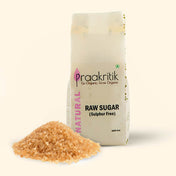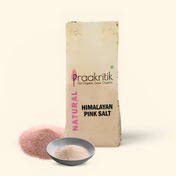In our fast-paced world, where convenience often takes precedence, it's easy to overlook the importance of nourishing our bodies with wholesome, organic foods. However, an increasing number of individuals are awakening to the benefits of adopting an organic lifestyle and incorporating organic meals into their daily routines. This blog aims to delve into the essence of organic lifestyle meals, discussing their advantages, tips for incorporating them into your diet, and the impact they can have on your overall well-being.
What Does "Organic" Mean?
Before we dive deeper into the realm of organic lifestyle meals, let's clarify what "organic" actually means. In the context of food, organic refers to the way agricultural products are grown and processed. Organic foods are cultivated without the use of synthetic pesticides, herbicides, fertilisers, or genetically modified organisms (GMOs). Instead, organic farming relies on natural methods that prioritise soil health, biodiversity, and environmental sustainability.
The Benefits of Organic Lifestyle Meals
- Nutrient Density: Organic foods are known to be more nutrient-dense compared to their conventionally grown counterparts. They tend to contain higher levels of vitamins, minerals, and antioxidants, which are essential for optimal health.
- Free from Harmful Chemicals: By choosing organic lifestyle meals, you reduce your exposure to potentially harmful chemicals commonly found in conventionally grown produce. Pesticides and herbicides have been associated with various health concerns, including hormone disruption, neurotoxicity, and increased risk of certain diseases.
- Environmental Impact: Supporting organic farming practices promotes a healthier ecosystem. Organic farming methods protect soil quality, conserve water, and preserve biodiversity. By opting for organic lifestyle meals, you contribute to the sustainability of our planet.
Tips for Incorporating Organic Lifestyle Meals
- Shop Locally: Visit farmers' markets, co-ops, or local organic farms to source fresh, seasonal produce. Not only does this support local agriculture, but it also ensures that the food you consume is at its peak freshness and flavor.
- Plan and Prep: Take some time to plan your meals in advance. This allows you to create a balanced menu and ensures you have all the necessary ingredients on hand. Preparing meals at home gives you control over the quality and origin of the ingredients.
- Embrace Whole Foods: Incorporate a variety of whole, organic foods into your meals. Opt for organic fruits, vegetables, grains, legumes, and lean proteins. Experiment with vibrant, plant-based recipes to explore the diverse flavors and textures nature has to offer.
- Grow Your Own: If you have space, consider growing your own organic produce. Even a small herb garden or a few potted vegetables can provide a rewarding and sustainable source of fresh ingredients for your organic meals.
The Impact on Your Well-being
Embracing an organic lifestyle and adopting organic meals can have a profound impact on your overall well-being. Here are some potential benefits:
- Enhanced Nutrition: By consuming nutrient-dense organic foods, you provide your body with the essential vitamins, minerals, and antioxidants it needs for optimal functioning.
- Increased Energy Levels: The avoidance of synthetic chemicals and the consumption of wholesome organic meals can lead to increased energy levels and improved vitality.
- Improved Digestion: Organic foods are often free from artificial additives and pesticides that can irritate the digestive system. This may lead to better digestion and a reduced risk of gastrointestinal issues.
- Long-Term Health Benefits: While individual results may vary, choosing an organic lifestyle can potentially reduce the risk of certain health conditions, including allergies, hormonal imbalances, and certain cancers.
In a world that often prioritises convenience over health, adopting an organic lifestyle and incorporating organic meals into your diet can significantly contribute to your overall well-being. By choosing organic foods, you not only nourish your body with nutrient-dense ingredients, but you also support sustainable farming practices and minimise your exposure to harmful chemicals.
Remember, transitioning to an organic lifestyle doesn't have to be overwhelming. Start by making small changes in your diet and gradually incorporate more organic meals. Experiment with new recipes, explore local markets, and connect with like-minded individuals who share your passion for organic living. By embracing the essence of organic lifestyle meals, you can embark on a journey towards improved health, environmental consciousness, and a deeper connection with the food you consume.
So, why not take the first step today? Embrace the benefits of organic living and savor the goodness of organic lifestyle meals. Your body, mind, and the planet will thank you for it.
Remember, the choice to adopt an organic lifestyle is a personal one, and it's important to listen to your body and make decisions that align with your individual needs and preferences. Consult with a healthcare professional or a nutritionist for personalized advice if needed.






